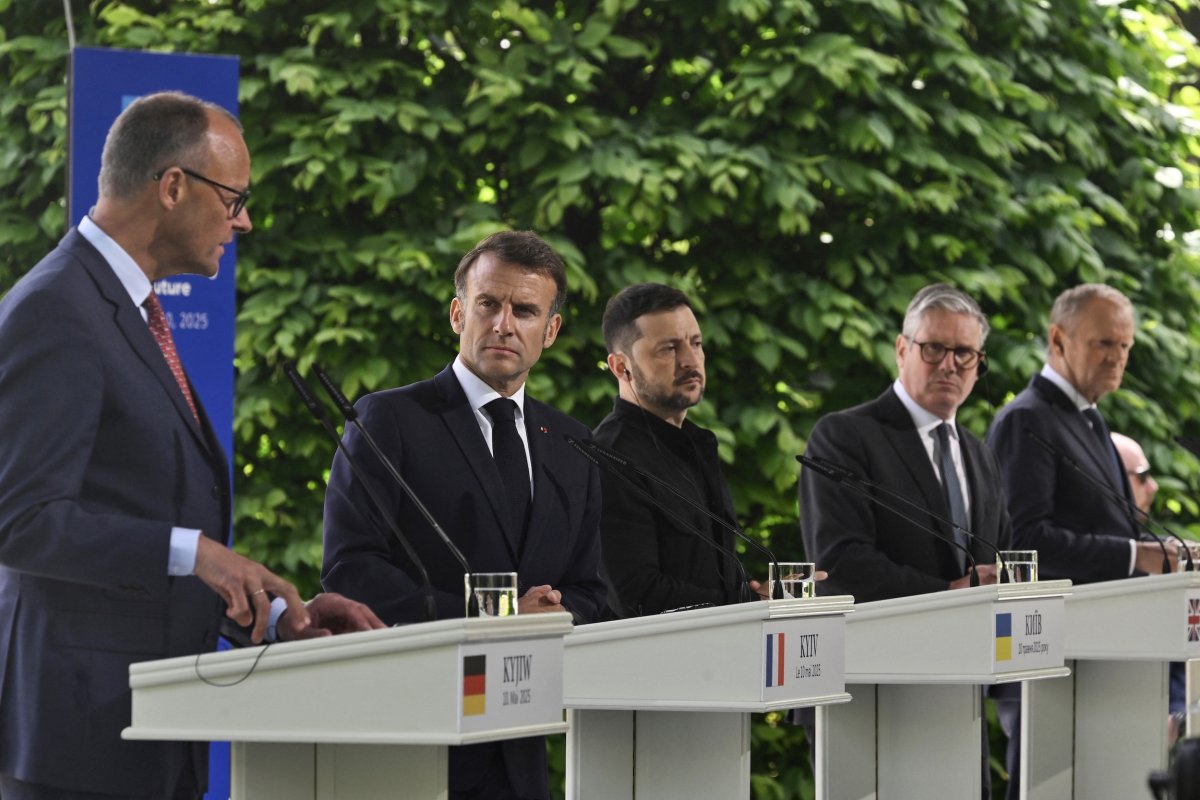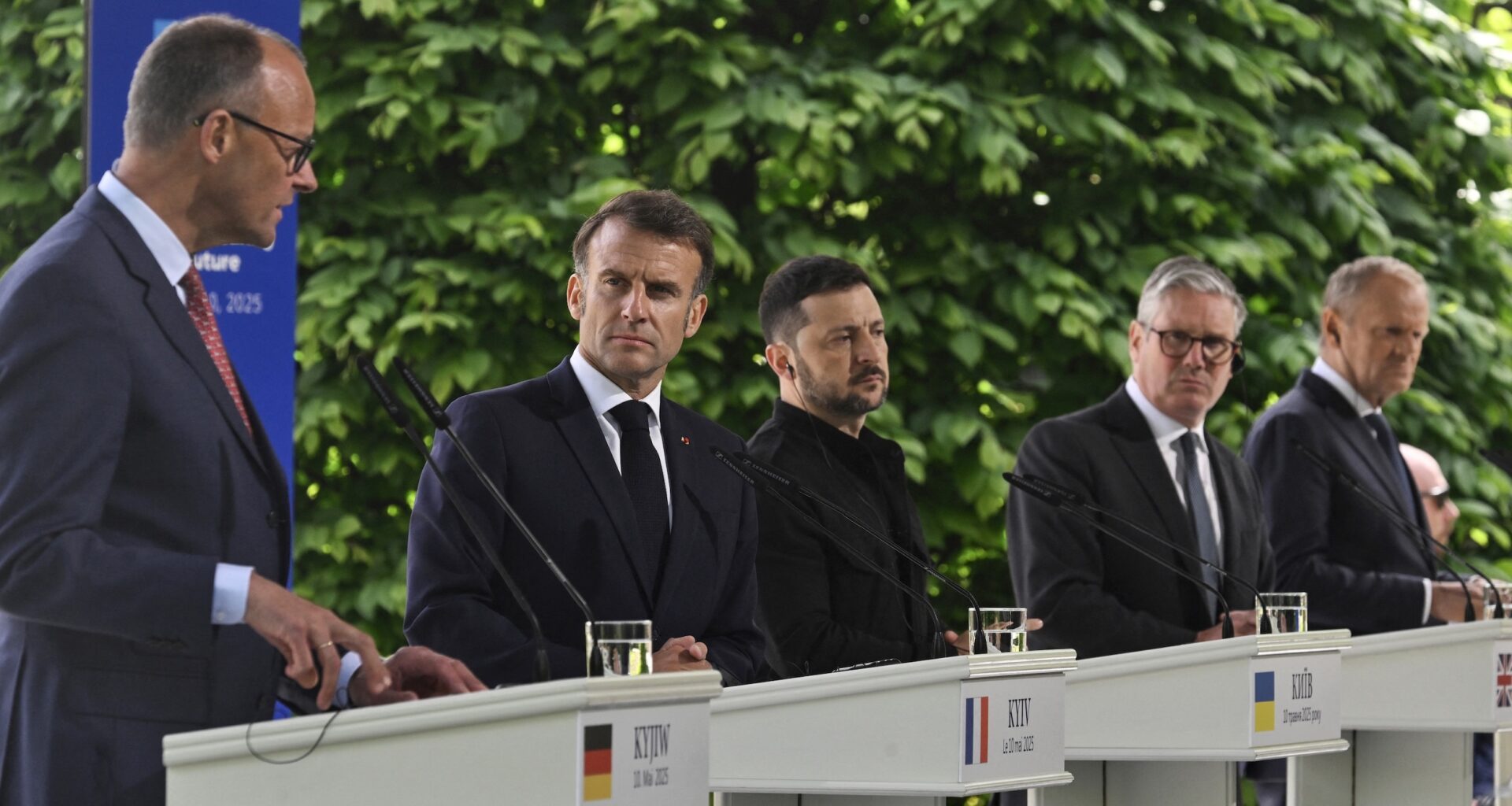Last week, Friedrich Merz made history for all the wrong reasons. He became the first German Chancellor in over 75 years to lose the primary round of the Bundestag vote.
Yes, Merz got in (narrowly) in the second round. But the initial defeat reflected a deepening crisis that extends beyond Germany to governments across Europe: deindustrialization, dwindling growth, and a lack of liberal solutions are converging to drive disgruntled voters towards hateful, far-right populism.
It’s time for bolder action. To renew the European economy and stabilize their governments, Europe’s leaders should build new partnerships with countries that share their vision of the future, even if that means leaving aside the United States.
Germany lost 120,000 manufacturing jobs in 2024 alone, while the U.K.’s manufacturing projections have been downgraded after bigger-than-expected economic contractions. But while liberalism flails, populism offers few actual solutions to Europe’s fiscal woes. European economies won’t be fixed by bashing immigrants or banning Pride flags. Scapegoating minorities won’t reverse years of industrial decline.
Donald Trump’s second term, meanwhile, has taken a sledgehammer to the European economy’s already dire prospects. The uncertainty of global tariffs, exploding trade war with China, and endless attacks on European nations as parasitic leeches on the U.S. economy mark the demise of the trans-Atlantic alliance.
Unfortunately, the U.K. has fallen right into Trump’s hands, scraping through a trade deal with more loopholes than advantages. Prime Minister Keir Starmer is living under the delusion that he can strengthen ties with both the U.S. and the EU, while the U.S. tears the foundations of the West apart.
The EU’s choice is now clear. Trump’s tantrums highlight Europe’s mistake in neglecting to nurture new partnerships where growth is taking off—the rapidly emerging economies of the Middle East, Asia, and Africa.
To some extent, Europe has already begun to pivot. European governments and corporations are exploring common ground with foreign actors in sectors ranging from energy and climate technology to security and defense.
Rolls-Royce, for example, has spent years building relations with Gulf Arab States, fulfilling high-value defense contracts. More recently, the British engineering giant has reaped even bigger awards, securing a £1 billion investment from Qatar to accelerate its development of climate-friendly technologies.

(From L) German Chancellor Friedrich Merz, French President Emmanuel Macron, Ukrainian President Volodymyr Zelensky, British Prime Minister Keir Starmer and Polish Prime Minister Donald Tusk give a joint press conference after their meeting in the…
(From L) German Chancellor Friedrich Merz, French President Emmanuel Macron, Ukrainian President Volodymyr Zelensky, British Prime Minister Keir Starmer and Polish Prime Minister Donald Tusk give a joint press conference after their meeting in the Ukrainian capital Kyiv on May 10, 2025, amid the Russian invasion of Ukraine.
More
Genya SAVILOV / AFP/Getty Images
Germany has had a taste, too, with the Abu Dhabi National Oil Company (ADNOC) recently acquiring its celebrated chemicals company Covestro for nearly €15 billion.
A specialist developer of innovative polymers and recycling techniques, Covestro previously struggled to keep its head above water as the German economy sank deeper into decline. Prior to the deal with ADNOC, the firm had reported net losses of around €72 million in the first half of the year. Now, with an extra cash injection and the security of Gulf financial backing, the company has ramped up investment in sustainable materials and technologies. Instead of job losses, Covestro looks set for a new era of exciting growth.
Acquiring Covestro has been crucial to ADNOC’s diversification strategy and even in delivering Abu Dhabi’s climate goals—which are notably far more ambitious than America’s.
It’s now time for Europe to double down on these sorts of partnerships—to forge new friendships, and scale up new relationships, all in former colonies. Freed from the strictures of the U.S. bootprint, and while Trump revels in his economic self-destruction, the EU can get in a position to benefit from the world’s fastest-growing regions.
Whether on energy and the environment or security and defense, under President Trump, America no longer shares our vision of tomorrow’s world.
If Trump wants America to be isolated, then perhaps we should let him have his way. If the rest of us stand united—or at the very least, open to discussion and compromise—then we are stronger and more capable without him.
By partnering with countries across the Middle East, Asia, Africa, and beyond, Europe can unlock thriving markets, booming economies, and sustainable, prosperous growth.
Meanwhile, Trump will be left bewildered by the soaring price of eggs, wondering how it all went so wrong.
Gilberto Morishaw is an expert on international governance, innovation and systems thinking. He previously served as a youth advisor to the European Commission for International Partnerships. Morishaw is also a Senior Fellow at Humanity in action, a TILN Fellow of the German Marshall Fund and a Global Shaper at the WEF.
The views expressed in this article are the writer’s own.
